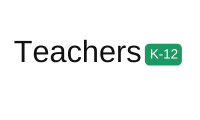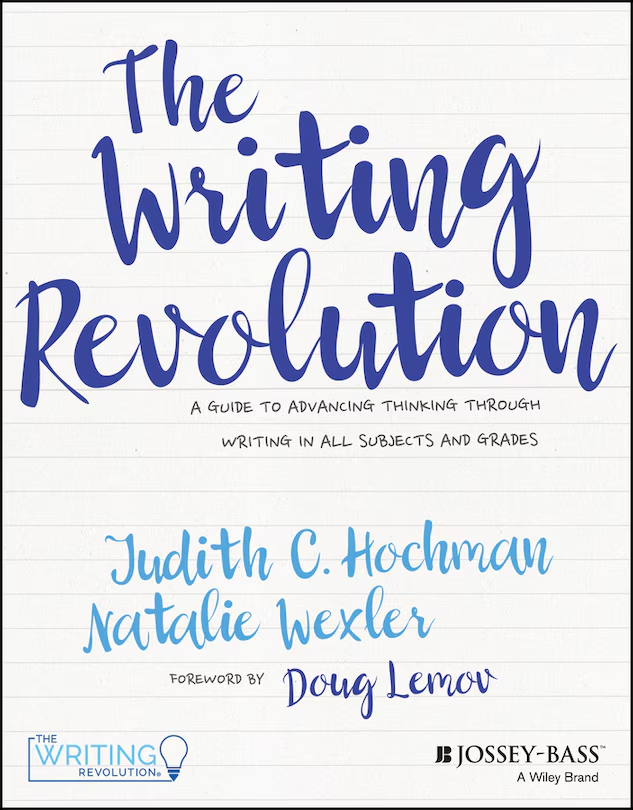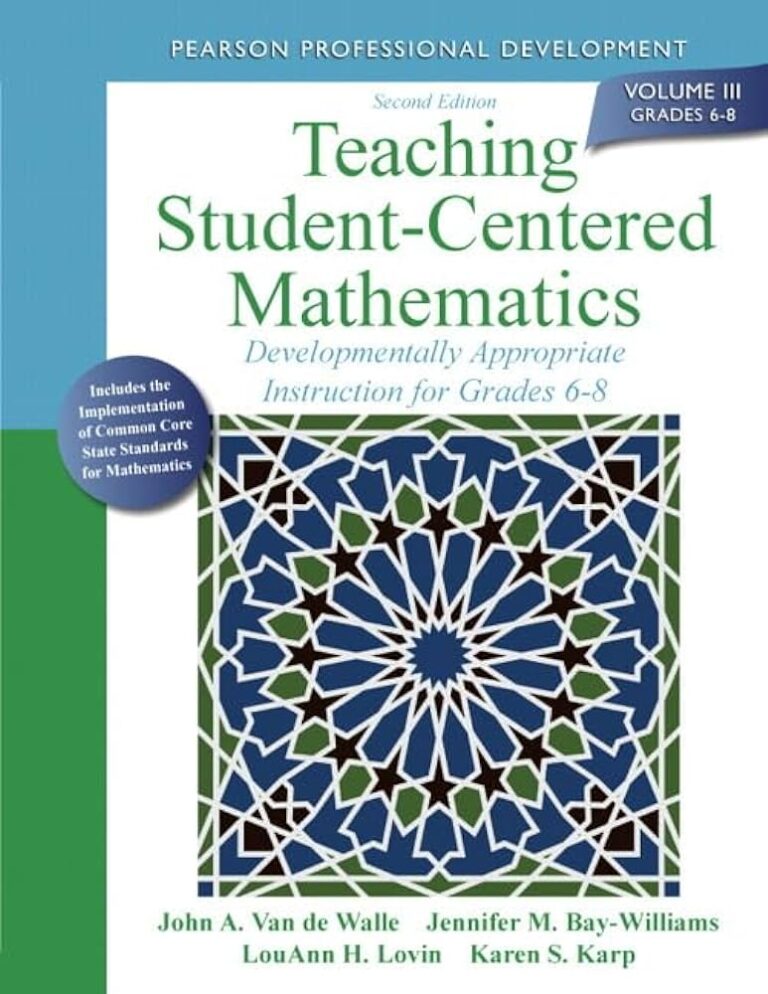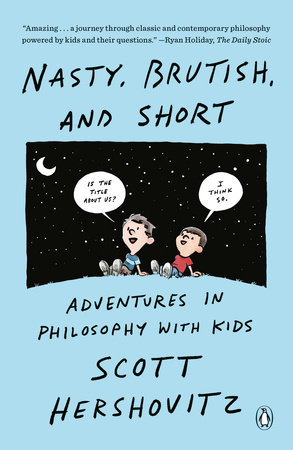A colleague of mine introduced me to this book by Judith C, Hochman and Natalie Wexler.
My colleague is an experienced and highly effective teacher who’s seen books and fads come and go. She doesn’t dole out compliments. When she said The Writing Revolution (TRW) transformed her writing instruction, of course I was curious.
I skimmed the introduction and approved of the six principles which are outlined in the introduction. Then I flipped through the rest of the book and noticed some of the activities that I could implement right away without a close reading of the whole book. I decided this would be my reading for professional development this school year.
The six principles are as follows:
- Students need explicit instruction in writing, beginning in the early elementary grades.
- Sentences are the building blocks of all writing.
- When embedded in the content of the curriculum, writing instruction is a powerful teaching tool.
- The content of the curriculum drives the rigor of the writing activities.
- Grammar is best taught in the context of student writing.
- The two most important phases of the writing process are planning and revising.
I like the acknowledgment that sentences are the building blocks of all writing. This idea has been the basis of how structure my writing program with a heavy emphasis on sentences in the early part of the first term, a shift to focus on paragraphs later in the term, then a shift to whole pieces in the third term.
One thing that I implemented and saw success with was explicitly teaching basic conjunctions (because, but, so). I chose to embed this instruction into Social Studies, my grade 4s were learning about Ancient Civilizations based on the Ontario curriculum.
Here’s an example of how it translated in this scenario. Students had to complete sentences:
The ancient Egyptians believed their pharaoh was a god because …
The ancient Egyptians believed their pharaoh was a god but …
The ancient Egyptians believed their pharaoh was a god so …
Not only did the exercise teach them a more complex structure, it also provided an opportunity for them to think analytically about the content.
This approach really delivers on one of the central promises of The Writing Revolution.
It breaks down the writing process into manageable chunks and then has the students practice the chunks they need, repeatedly, while also learning content. For example, if you want your students to make their sentences more informative and varied, you won’t just ask them to do that and leave it up to them to figure out how. Instead, you’ll introduce specific ways of creating more complex sentences…
The Writing Revolution: A Guide to Advancing Thinking Through Writing in All Subjects and Grades pg.7
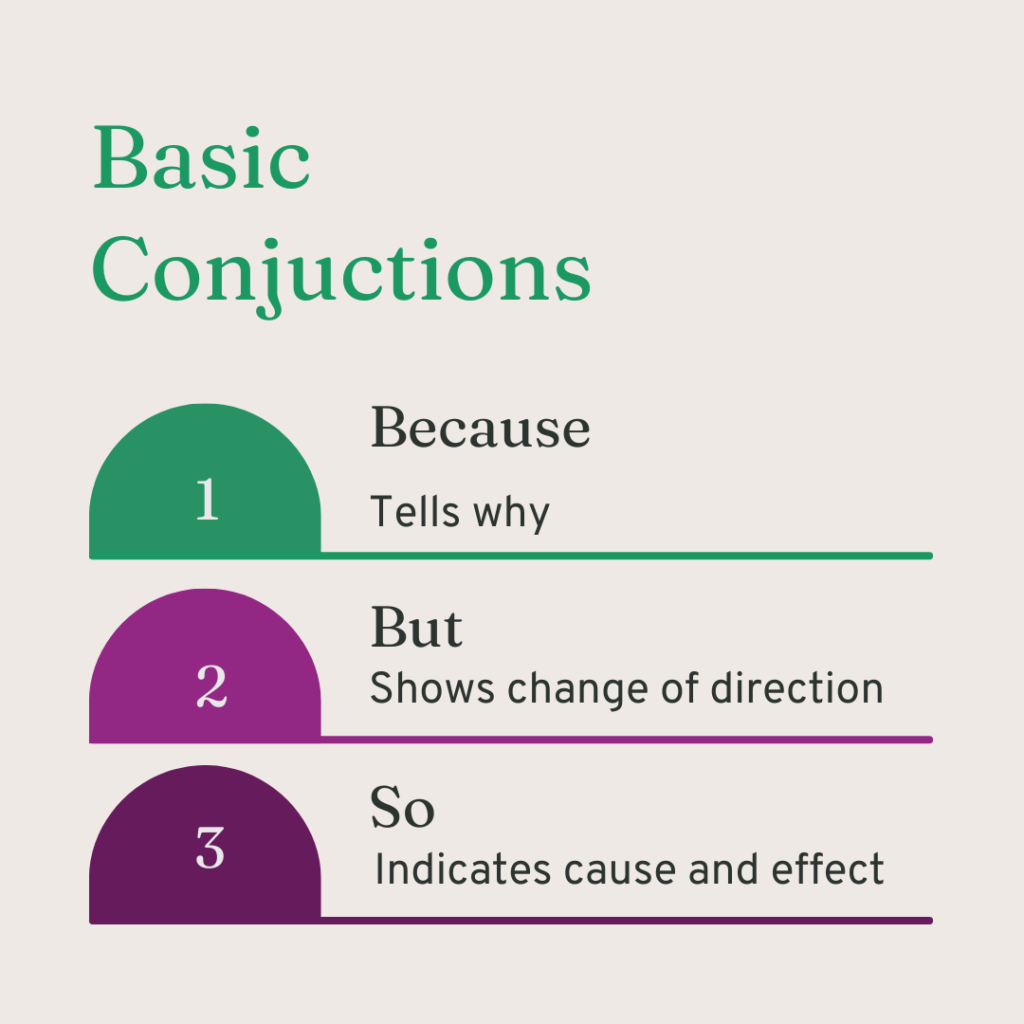
If you’re intrigued by this book, know that this is not a work book. It would be awesome if they took all the activities described and applied them to my very specific grade and subject that I’m teaching. But as I’m typing this, I’m realizing the writers couldn’t achieve that in one book.
Hopefully, this catches on and more textbooks will be developed based on the principles, approaches and strategies outlined in this book.
